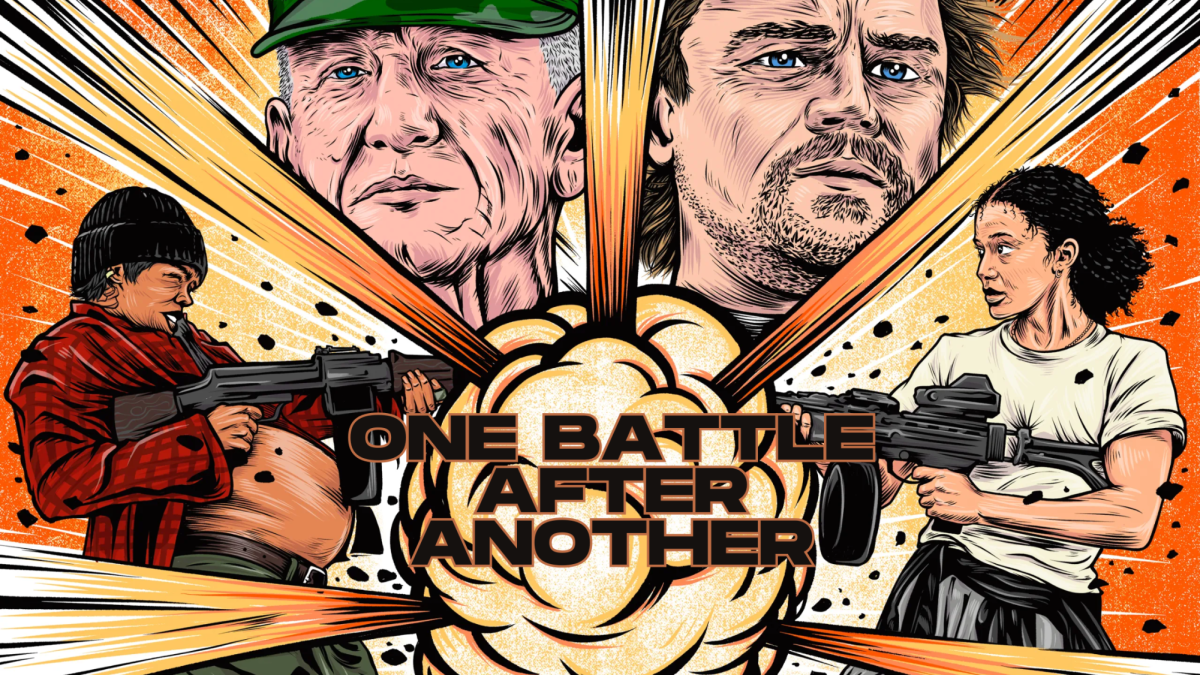On the surface, it’s a political thriller rooted in paranoia and government overreach, with a narrative that touches on immigration, authoritarianism, and revolutionary resistance. But beyond the political commentary, it’s also an outrageous piece of entertainment.
After a prologue that sets up the ideological and political stakes, the film kicks into gear as a full throttle chase movie. Director Paul Anderson gives us sequences like a desert car pursuit that becomes both a surreal mirage and an action set piece. What was most impressive is that the spectacle never felt empty, each chase, fight or narrow escape is infused with character and purpose with hints of humor that keep the film unpredictable and alive.
Leonardo DiCaprio anchors the film as Bob Ferguson (also known as “Ghetto Pat”), a burnout revolutionary whose daughter Willa (a breakout performance by Chase Infiniti) becomes the target of Colonel Steven Lockjaw (Sean Penn). DiCaprio’s mix of intensity and comic timing keeps the character sympathetic even in his moments of being completely useless. Penn, however, leans a bit too far into caricature, embodying Lockjaw as a grotesque cross between authoritarian menace and comic absurdity. While some viewers may find his over-the-top villainy distracting, others will see it as a deliberate exaggeration that underscores how absurd real-world extremist can look when stripped of its power. Meanwhile Benicio del Toro steals nearly every scene as Sensei Sergio, whose calm wisdom provides both comic relief and genuine heart. Teyana Taylor’s Perfidia Beverly Hills delivers a firebrand energy that embodies both revolutionary zeal and dangerous ambiguity.
What makes this movie particularly remarkable is how it balances politics with genre thrills. The film delivers its politics not through heavy handed preaching but as a darkly funny. Absurd take on authoritarian regimes, resistance movements, and America’s fractures present. The French 75, a leftist revolutionary group are neither noble martyrs nor effective freedom fighters, their resistance feels messy, misguided and sometimes counterproductive. Meanwhile Lockjaw and his white supremacist allies are both terrifying and ridiculous, a blend that resonates with the surreal realities of the Trump era United States.
The immigration subplot is especially impossible to ignore. The film doesn’t treat detention centers or government raids as an abstract concept it shows the way they fracture communities and tear families apart. What’s the most unsettling is how routine these images feel, echoes of headlines and footage that have dominated the national conversation to the point of desensitization. By rooting its action in sceneries that feel both absurd and plausible, the film forces its audience to confront the reality of authoritarianism as it plays out through everyday systems of control. These political references never weigh down the film, instead it gives it urgency and reminds us that these absurd battles reflect real stakes.
“One Battle After Another” is messy, absurd, funny, and deeply serious all at once. It’s Anderson channeling the paranoia thrillers of the 1970’s and crafting a film that speaks directly to the anxieties of our current society. While not every choice lands the film remains one of the most entertaining and politically pointed works of Anderson’s career. For me it was thoroughly entertaining from start to finish, keeping me laughing one moment and then reflecting on the next scene. 5/5 stars, I would recommend everyone to go see it.


